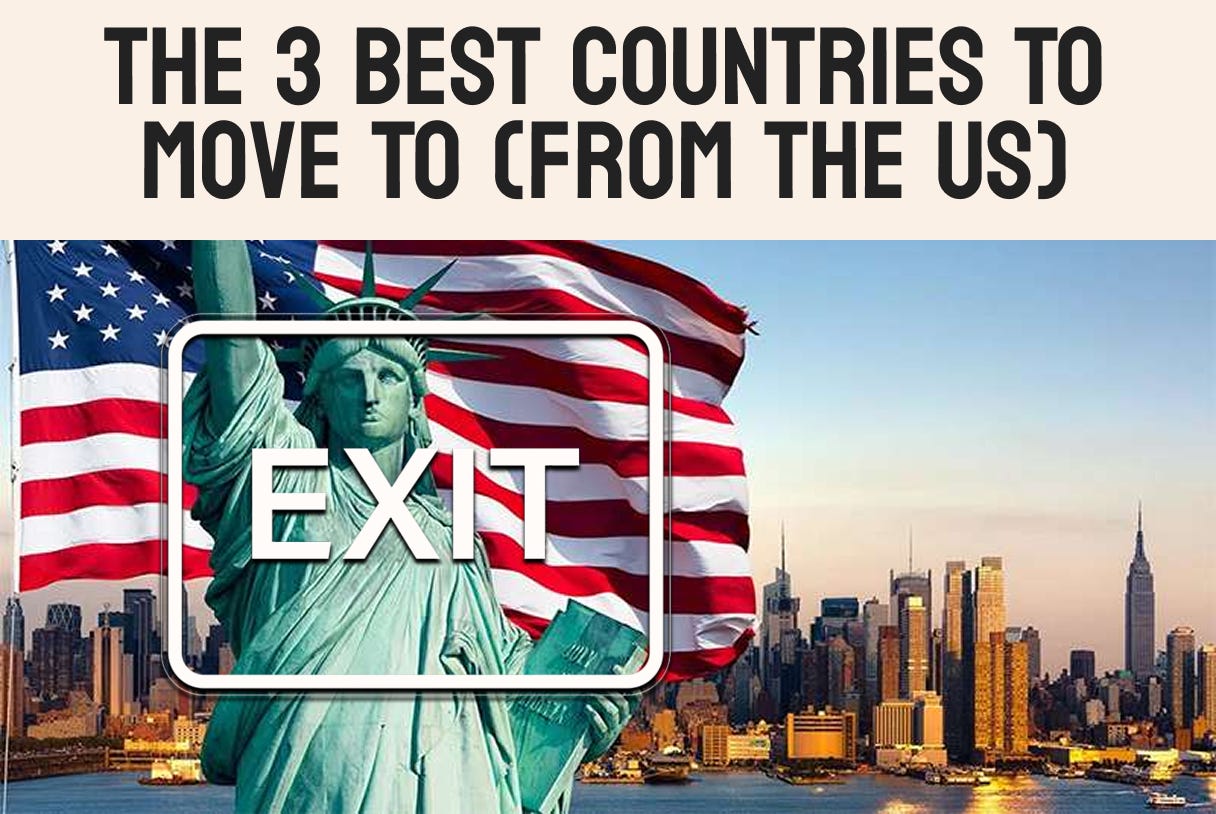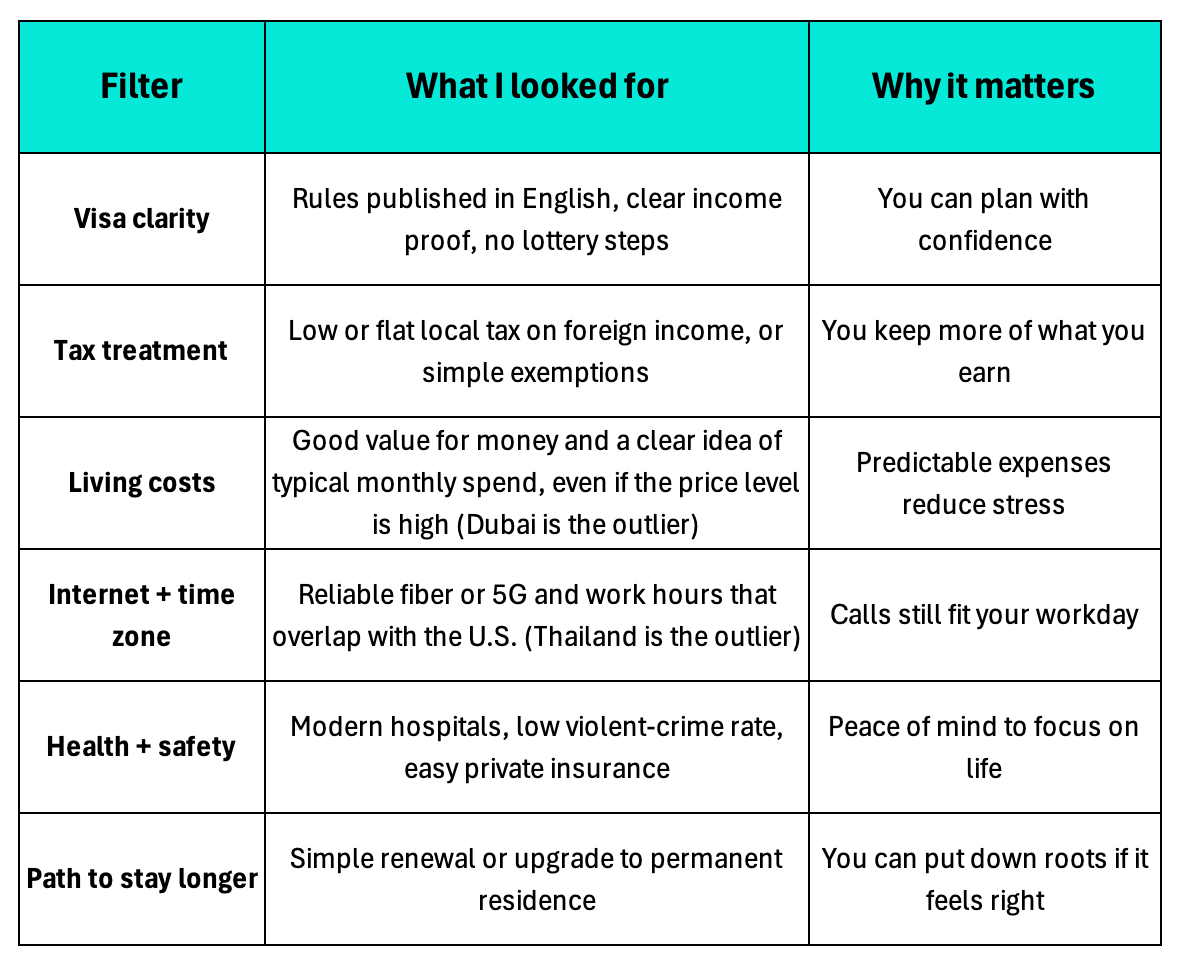The 3 Best Countries To Move To (From The US)
Leaving can be the best decision you make.
Concerning Developments
More Americans are packing their passports than at any point in recent memory. Annual renunciations jumped from a few hundred cases before 2009 to more than 6.700 in 2020 and the number has stayed high ever since. A recent survey shows that almost half of U.S. expats are now thinking about giving up citizenship altogether.
Remote work is a big factor. Fully remote roles have climbed to thirteen percent of U.S. job postings and hybrid setups cover nearly a quarter of new openings in 2025.
When location stops deciding your work, the question goes from “Can I leave?” to “Where will life feel richer?”
I have spent the past decade living across five continents. This guide distills that experience into 3 practical choices. Clear visa rules, good tax treatment, and day‑to‑day comfort set these places apart.
Grab a coffee, sit back, and read which country fits it best.
Why Should You Trust What I Write?
I do more than read press releases. I test rules on the ground and turn them into clear steps my readers can use. Here is what backs up the advice that follows:
Weekly research. I track visa laws and tax updates across seventy‑five countries and update the data in my ClubCitizen App every week.
Hands‑on moves. I have lived many years abroad and gone through six residence permits myself, from tourist extensions to full long-term stay permits.
Reader feedback. I got my eye of what people think about when they are talking about wanting to move.
Use this experience as a shortcut, to save you some time.
What I Looked For
I ran each country through six clear checks to keep the process objective. The table below shows every filter and the reason it matters, so you can see exactly how the final 3 came together.
Now let’s check the 3 countries I would recommend.





